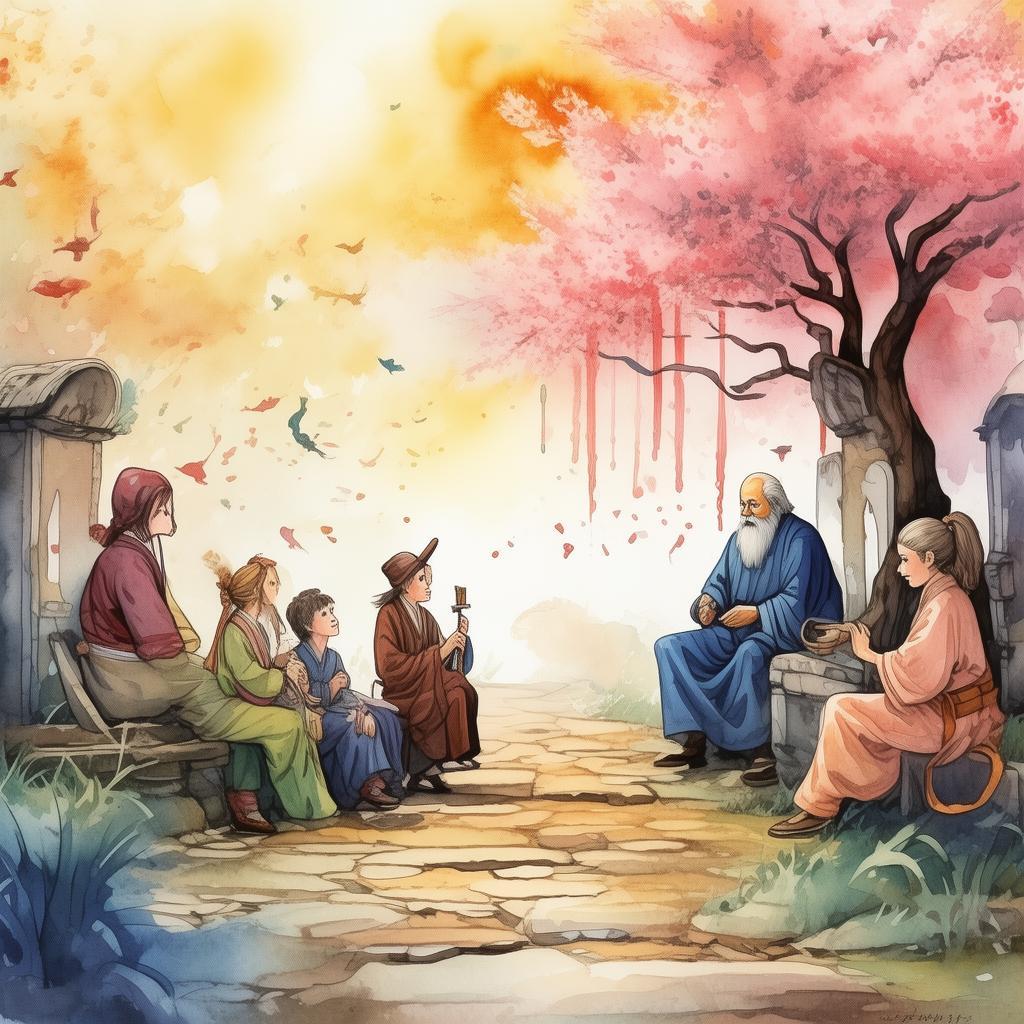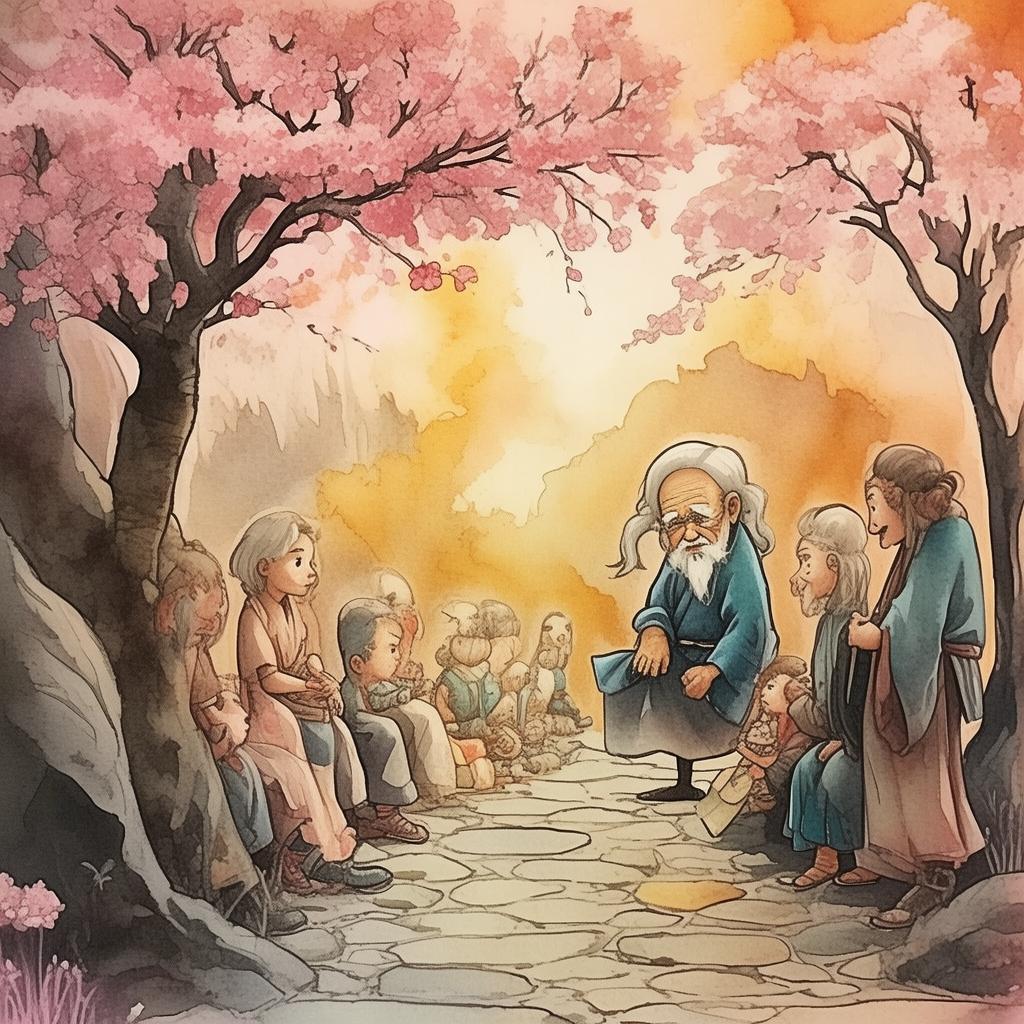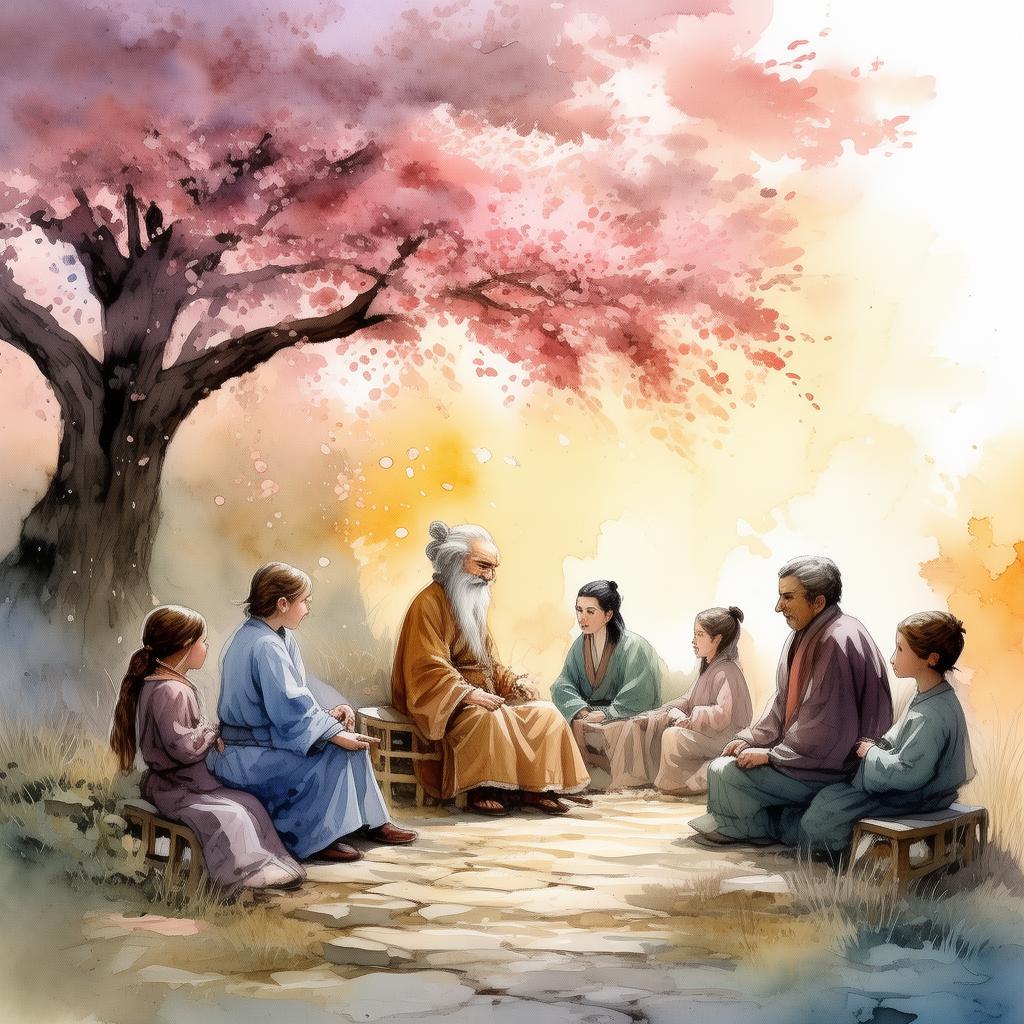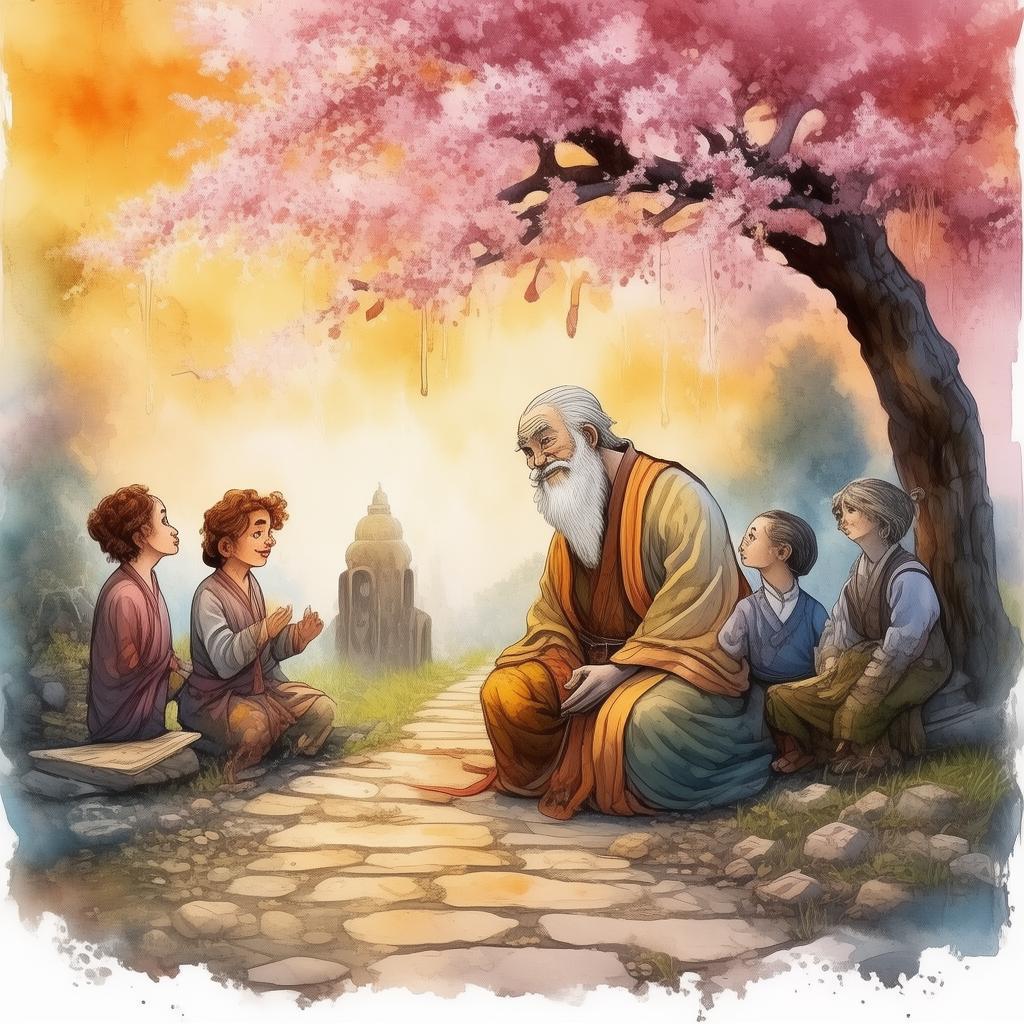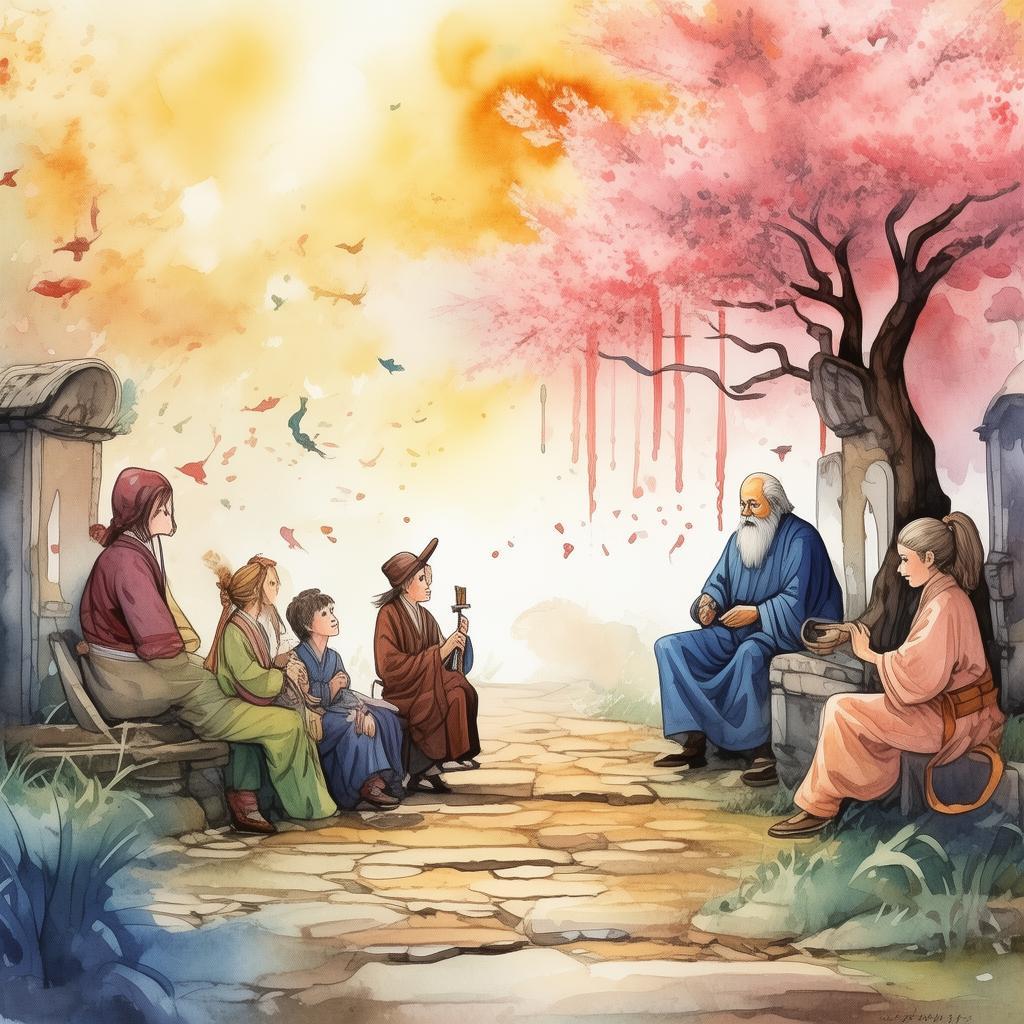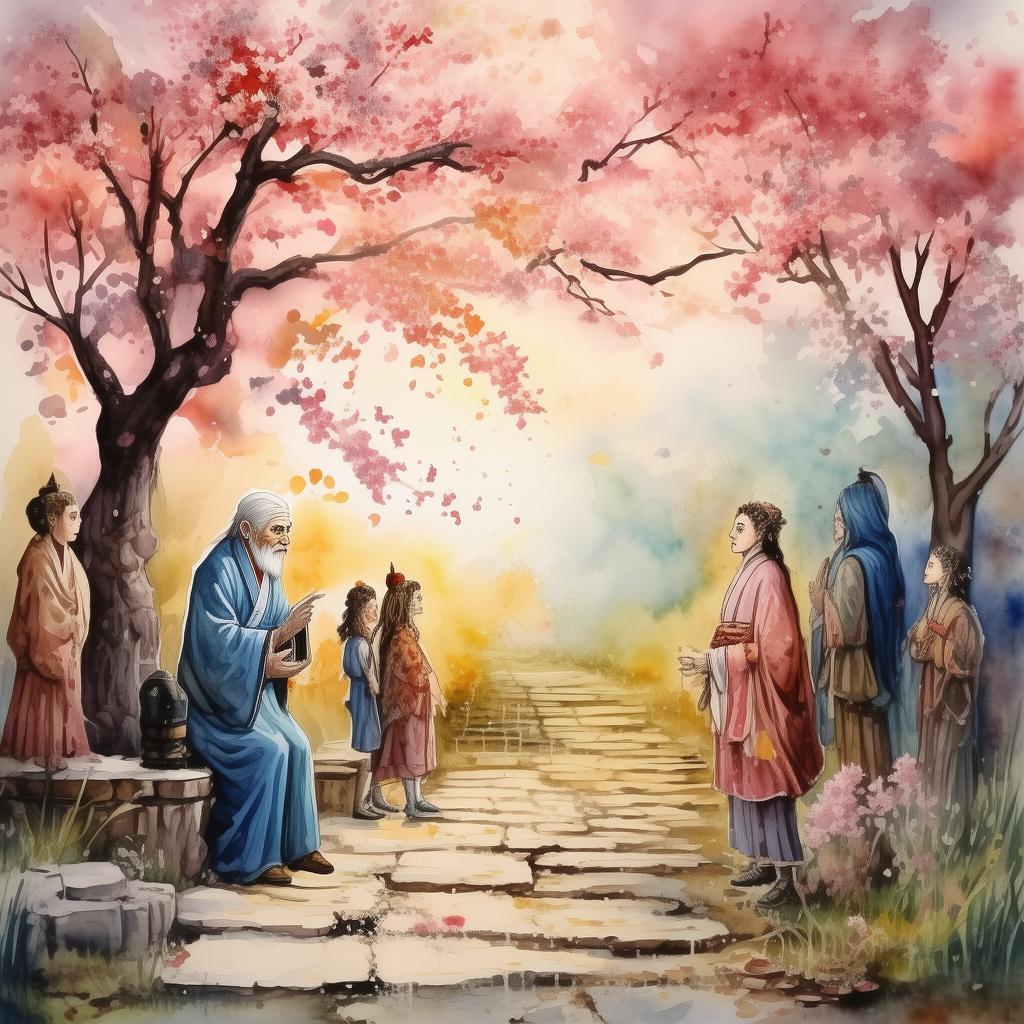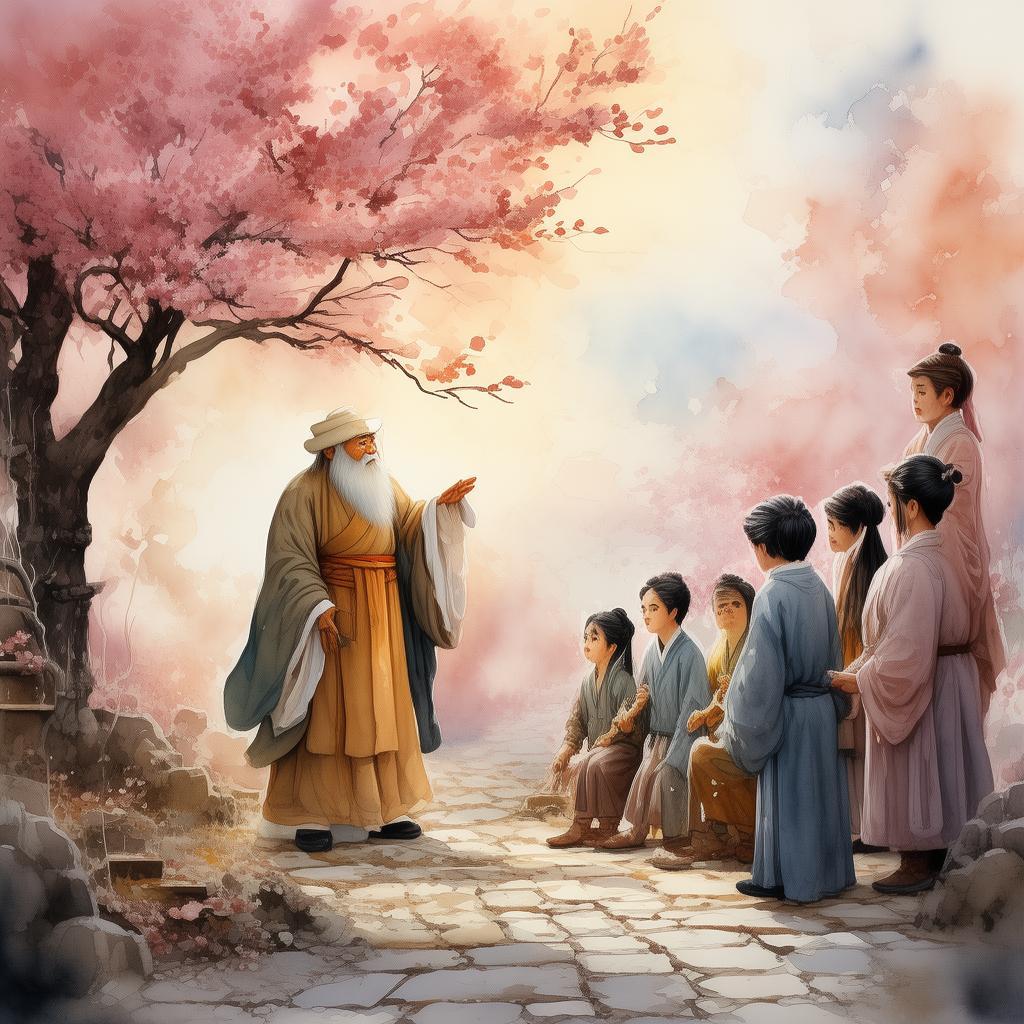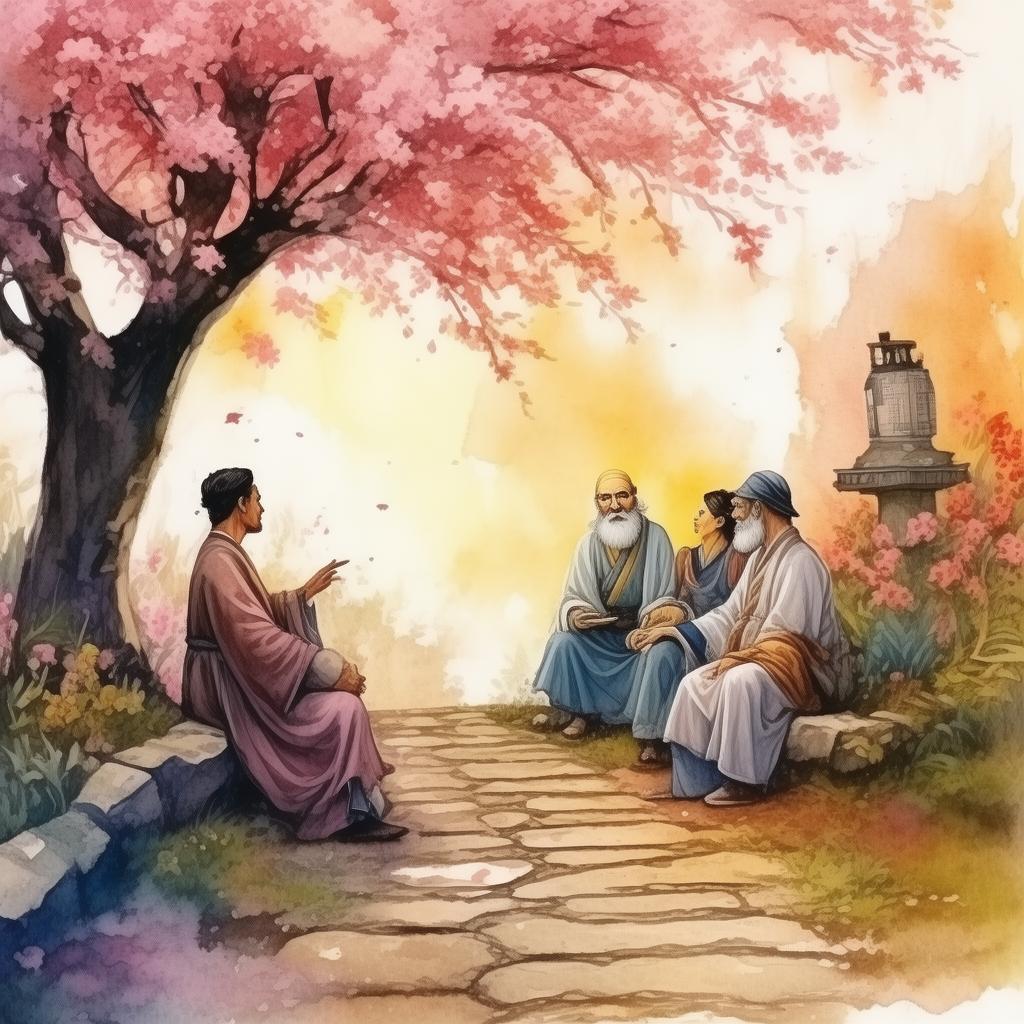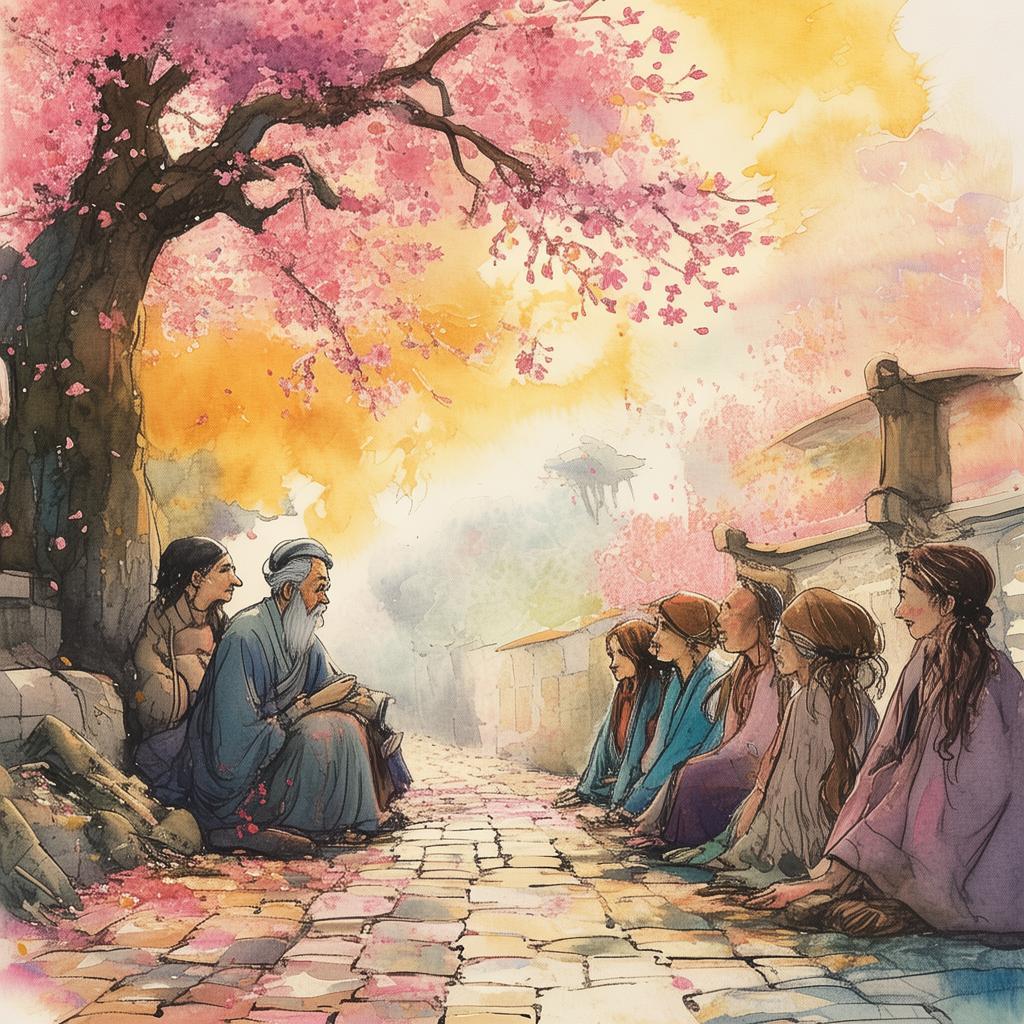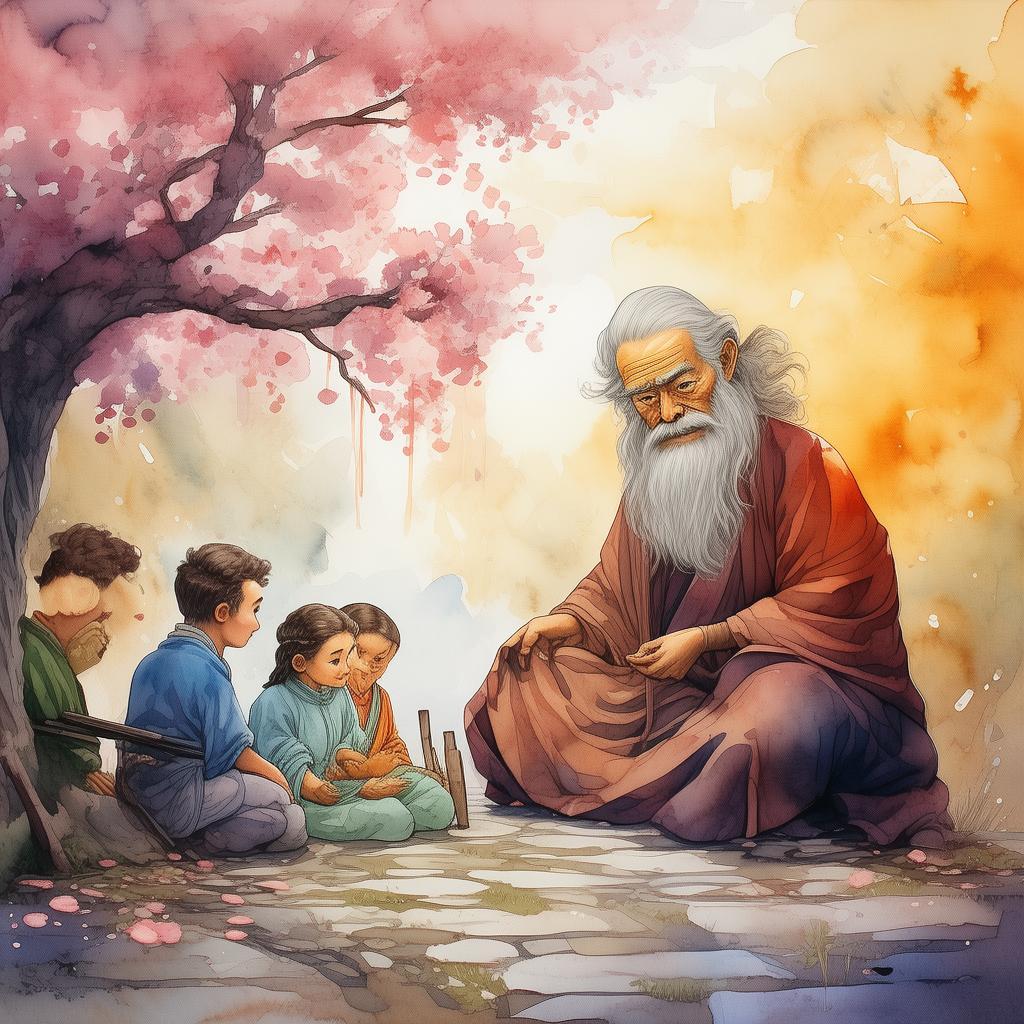The Scribe's Soliloquy: Echoes of the Pen's Silence
In the heart of an ancient city, where the echoes of time seemed to whisper through the cobblestone streets, there lived a scribe named Lin. His name, etched into the annals of history, was as silent as the ink that flowed from his quill. Lin was not a man of many words; his life was a testament to the profound power of the written word.
The city was a melting pot of cultures, a place where merchants from distant lands bartered spices and tales. Yet, amidst the cacophony of life, Lin found his sanctuary in the quietude of his study, a room filled with scrolls and scrolls, each one a testament to his craft. His pen was his instrument, and his solitude was his stage.
The story of Lin's life began on a day when he was but a child, watching his father, a master scribe, pen the last lines of a scroll that would become a cornerstone of the city's history. The scroll, a chronicle of the city's founding, was to be preserved for generations to come. As the ink dried, Lin's father looked at him with a mixture of pride and sorrow, as if he were handing over a torch to a child too young to understand its weight.
"You will be the keeper of our stories," his father had said, his voice barely above a whisper. "You will write the silence of the world."
And so, Lin grew up with the weight of history on his shoulders. He learned the art of scribing from his father, mastering the delicate balance of ink and parchment, the rhythm of the quill as it danced across the page. But as he grew older, he began to feel the weight of his solitude. The city around him was a whirlwind of life, yet he felt more alone than ever.
One evening, as the sun dipped below the horizon, casting long shadows across his study, Lin sat down to write. His pen moved across the parchment with a grace that belied the turmoil within him. He wrote of the city's triumphs, its defeats, its dreams, and its fears. But as he wrote, he realized that his own story was missing from the tapestry of history.
"I am the silence," he wrote. "The voiceless observer, the keeper of the silent tales."
The next morning, Lin's scroll was found by a curious passerby, who, intrigued by the cryptic message, brought it to the city's elder, a wise man who had known Lin's father. The elder read the scroll and was struck by the simplicity and depth of the words.
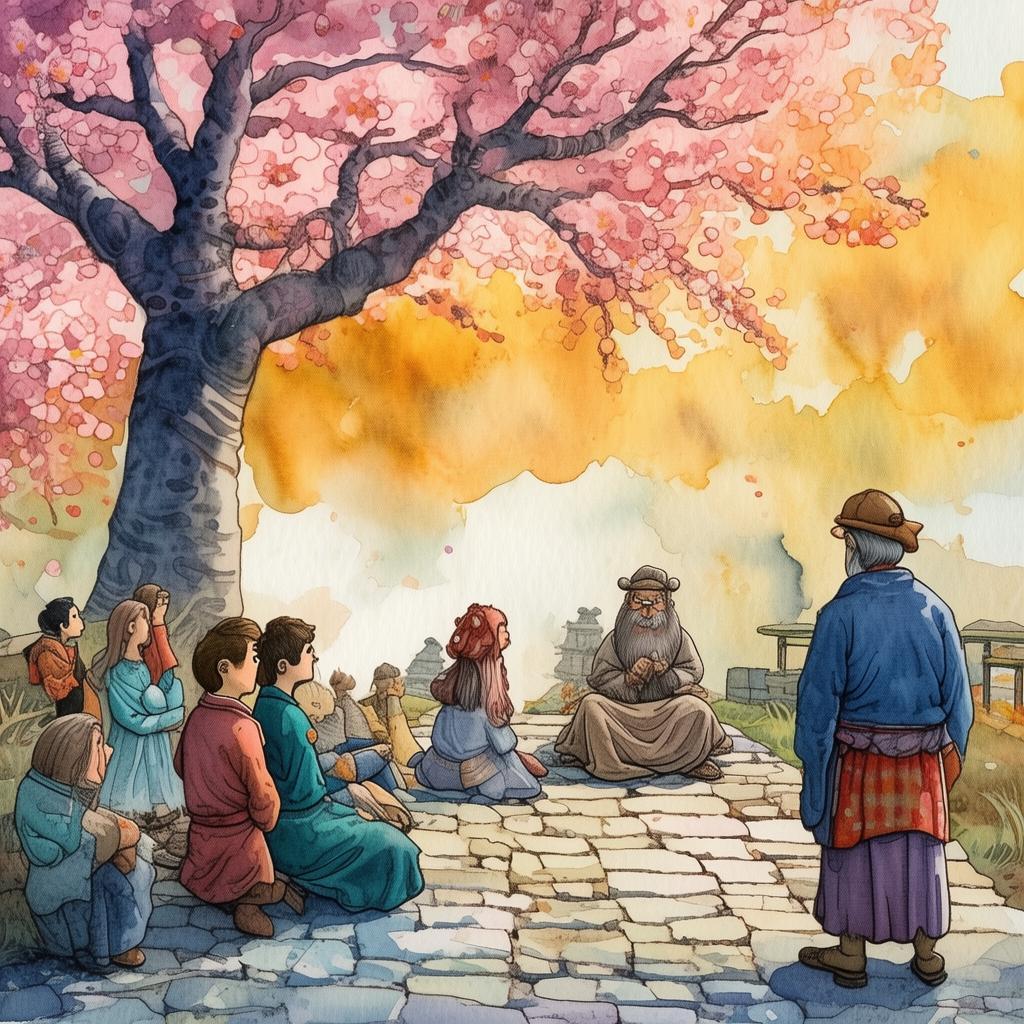
"This is the story of the scribe," the elder declared. "A story of solitude, of the power of the written word, and the legacy that endures beyond the spoken word."
The city was abuzz with talk of the scribe's scroll. People began to seek out Lin, curious to meet the man who had written of their lives. But Lin remained in his study, his solitude a shield against the newfound attention.
One day, a young girl with eyes like the morning sky approached Lin's study. She had heard the tales of the scribe and sought him out to ask a favor. She needed him to write a letter to her father, a soldier fighting in a distant land.
Lin agreed, and as he wrote, he felt a connection to the girl's father, a man he had never met but whose story was now intertwined with his own. The letter was filled with the warmth and hope of a son for his father, a testament to the power of the written word to bridge the gaps of silence.
As Lin handed the letter to the girl, she looked at him with gratitude and whispered, "Thank you for giving my father a voice."
Lin smiled, a rare sight for those who knew him. "It is my gift to give voice to the silent," he replied.
From that day on, Lin's solitude began to fade. He found solace in the company of those who sought him out, sharing their stories and their silences. His pen became a bridge between the spoken and the unspoken, a testament to the enduring legacy of the scribe.
Years passed, and Lin's scrolls filled the city's libraries, each one a testament to the power of the written word. The city, once a place of noise and chaos, began to find its voice through the silence of the scribe.
And so, the story of Lin, the ancient scribe, became a legend, a tale of solitude and the power of the pen. His legacy lived on in the city's history, a reminder that sometimes, the most profound stories are those that are never told, but are felt in the silence that follows.
In the end, Lin's solitude was not a curse but a gift, a gift that allowed him to write the stories of others, to give voice to the voiceless, and to leave an indelible mark on the world. And in the quietude of his study, amidst the scrolls and the ink, Lin found his true calling: to be the scribe of the silent world.
✨ Original Statement ✨
All articles published on this website (including but not limited to text, images, videos, and other content) are original or authorized for reposting and are protected by relevant laws. Without the explicit written permission of this website, no individual or organization may copy, modify, repost, or use the content for commercial purposes.
If you need to quote or cooperate, please contact this site for authorization. We reserve the right to pursue legal responsibility for any unauthorized use.
Hereby declared.
